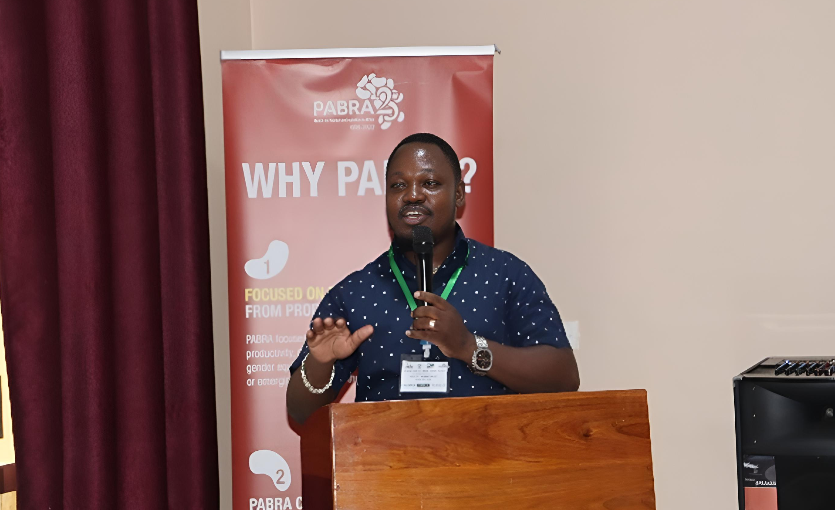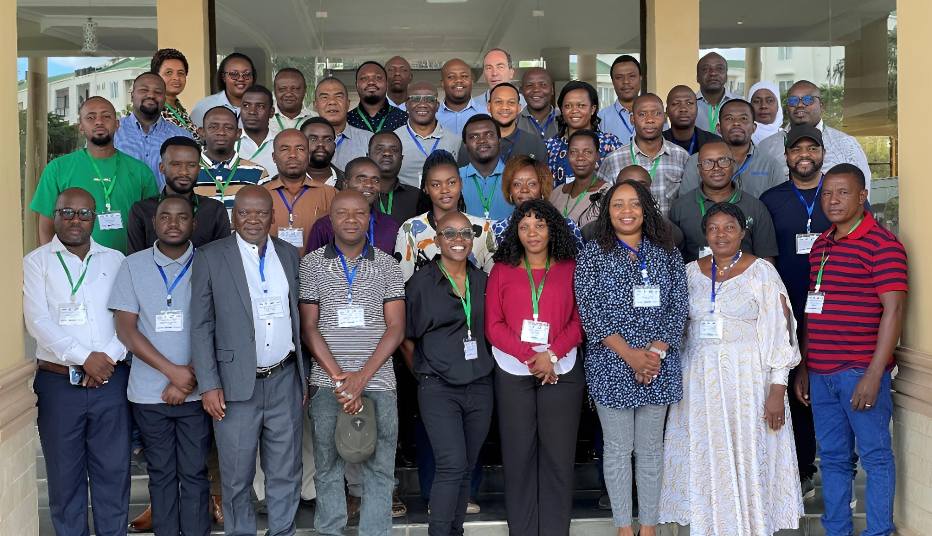By Atupokile Mwakatwila*, Justus Ochieng, Victor Lesedy, Radegunda Kessy, and Martin Majambele
*Corresponding author: a.mwakatwila@cgiar.org
Over the years, digital inclusion has revolutionized sectors like health, education, and finance now it’s agriculture’s turn. In Tanzania, digital tools are emerging as a powerful force to unlock growth, especially for smallholder farmers and agro-enterprises. Yet many actors remain left behind, especially grain traders and processors operating in rural or semi-formal markets.
Despite some strides being made, a digital divide persists. Poor infrastructure, low awareness, and limited digital literacy continue to isolate businesses from transformative solutions. As Gumbi et al. (2023) highlight, digital agriculture holds immense potential, but uptake is hampered by ecosystem gaps.
Recognizing these challenges, the Government of Tanzania and the United Nations launched the Data for Digital Agricultural Transformation initiative in 2024, aimed at improving productivity and resilience with a focus on women and youth. Yet for these tools to reach the last mile, traders and processors must be fully integrated into the digital ecosystem.
Traders: A critical link in the agricultural value chain
Grain traders and agro-processors don’t just move crops they create markets, provide input credit, and support rural infrastructure like village collection centers. For example, Kibaigwa Flour Supplies works with 7,850 farmers, including 3,400 under contract farming who receive inputs and sell produce at harvest (Mwakatwila et al., 2024).
But while digital tools for information sharing and transactions exist, most traders still rely on face-to-face interactions and paper records (Steinke et al., 2024). A joint United States and DAI (2023) report found that high costs, limited awareness, and infrastructure gaps are major barriers to adoption a pattern echoed across sub-Saharan Africa.
Unlocking the opportunity: ACCELERATE Project steps in
To address these challenges, the ACCELERATE Project, led by the Alliance of Bioversity International and CIAT with partners like Tanzania Agricultural Research Institute (TARI), Tanzania Official Seed Certification Institute (TOSCI), and International Maize and Wheat Improvement Center (CIMMYT), is spearheading efforts to enhance the efficiency of Tanzania’s grain trade through digital inclusion.
On April 14, 2025, the project convened a high-level stakeholder meeting in Dodoma, bringing together 33 grain traders from various regions in Tanzania and four digital service providers eProd, PESIRA Limited, Digital Mobile Africa, and Mkulima Hub to discuss digital transformation in the common bean, groundnut, and sorghum value chains. The gathering served as a valuable platform to explore how digital tools can enhance business efficiency and improve information exchange. It also offered digital service providers a unique opportunity to showcase their solutions and engage directly with traders to better understand their needs and challenges.
During the event, traders were introduced to practical digital tools and shown how these technologies could streamline their business operations. They identified several key benefits, including improved farmer profiling and record-keeping, enhanced access to pricing and markets, reduced transaction costs, greater transparency and traceability, and stronger financial inclusion and trust across the value chain.
However, traders also expressed important concerns that could hinder adoption. These included the high upfront and maintenance costs of digital tools, low levels of digital literacy and lack of training, limited availability of technical staff within small businesses, and poor internet connectivity in many areas where they operate. These barriers are well documented in literature (Rickards et al., 2025), with digital awareness, infrastructure, and skills repeatedly identified as bottlenecks to inclusion.
Learning from experience: Digitization at work
A highlight of the event was the testimony of Lazaro Mwakipesile from Raphael Group Limited (RGL), who shared his real-world experience using eProd to digitize grain aggregation and farmer management.
“Digitization is achievable. While the initial adoption and onboarding phase presented challenges, the positive impact has far outweighed them. With the right partners and strong commitment, digital transformation is not only possible, but also essential for scaling agricultural businesses in today’s modern landscape,” said Mwakipesile.

Lazaro Mwakipesile of Raphael Group Limited (RGL) shares his firsthand experience using eProd to digitize grain aggregation and streamline farmer management systems
A one-size-fits-all solution is unlikely to succeed in Tanzania’s diverse grain trading landscape. Instead, the report recommends a bundled approach tailored to the specific needs of different actors. This includes targeted capacity building using simple language, local demonstrations, and peer mentorship to strengthen digital confidence. It also calls for transparent pricing models and clear return-on-investment (ROI) examples to help traders assess the value of digital tools. Continued follow-up and engagement between service providers and traders are essential to build trust and customize solutions to different business contexts. Lastly, supportive policy and ecosystem development including fair data governance and infrastructure investment are critical roles for government and development partners in enabling inclusive digital agriculture.
Through eProd’s low-bandwidth tools, RGL digitized inventory, farmer registration, and training processes cutting down on errors and enabling faster, real-time decisions. The result: a leaner, more responsive supply chain.
Conclusion: A path forward
Digital tools offer a game-changing opportunity to improve the efficiency, profitability, and resilience of Tanzania’s grain and agro-processing sector. But adoption remains slow due to persistent barriers especially among informal market actors.
Initiatives like ACCELERATE are helping to turn the tide by connecting traders with service providers, raising awareness, and building business linkages. For digital inclusion to truly take root, collaborative, user-centered, and inclusive strategies are essential.
As the sector modernizes, grain traders are encouraged to take that first step, try a small digital solution, then scale. With the right support, Tanzania’s agri-trade sector can leap into a more connected, data-driven future.
_______________________________________________________________
Frame 1: Participants of the Digital Inclusion Meeting organized by the Accelerate Project at Nashera Hotel, Dodoma, Tanzania, on 14th April 2025.


